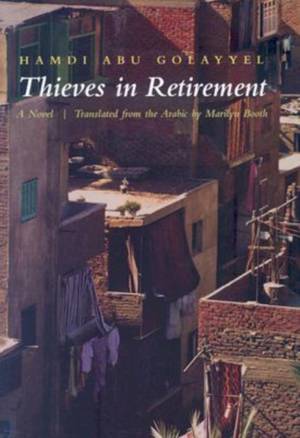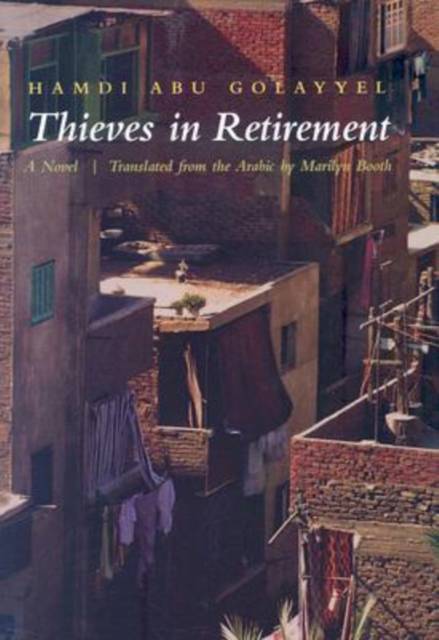
- Afhalen na 1 uur in een winkel met voorraad
- Gratis thuislevering in België vanaf € 30
- Ruim aanbod met 7 miljoen producten
- Afhalen na 1 uur in een winkel met voorraad
- Gratis thuislevering in België vanaf € 30
- Ruim aanbod met 7 miljoen producten
Zoeken
Omschrijving
Hamdi Abu Golayyel offers a striking portrait of a marginalized Egyptian community, bringing to life the absurd and tragic characters who occupy the margins of society while paying tribute to a historical Cairene neighborhood. By turns comic, reverential, beautiful, and tawdry, the novel reveals a social climate where ruthlessness and goodness seem almost indistinguishable and humanity is on display in all its rich variety.
The novelist's distinctive vision of Egypt's various postmonarchy political regimes and ideologies shapes this dark comedy of human relations and underground pursuits in late twentieth-century Egypt. Through intricate levels of allegory, puns, and double meanings, Abu Golayyel effectively plays on the rhetoric associated with the nationalist government of Gamal Abdel Nasser, including the post-Nasser turn toward international capitalism with its a consumer-oriented economy-and movement away from the workers' rights orientation of the 1960s. This novel represents a new voice and a new stage in contemporary Arabic literature, as it criticizes official ideologies, whether socialist, capitalist, or Islamist. Abu Golayyel's cast of memorable characters embodies the arbitrariness of life and the search for purpose and dignity in a social milieu that offers little of either. Marilyn Booth's translation fluently renders the novel's delicate levels of diction and rhythm, making this brilliant Egyptian novel available to a much-deserved wider audience.Specificaties
Betrokkenen
- Auteur(s):
- Uitgeverij:
Inhoud
- Aantal bladzijden:
- 146
- Taal:
- Engels
- Reeks:
Eigenschappen
- Productcode (EAN):
- 9780815608523
- Verschijningsdatum:
- 1/10/2006
- Uitvoering:
- Hardcover
- Formaat:
- Genaaid
- Afmetingen:
- 147 mm x 210 mm
- Gewicht:
- 308 g

Alleen bij Standaard Boekhandel
+ 55 punten op je klantenkaart van Standaard Boekhandel
Beoordelingen
We publiceren alleen reviews die voldoen aan de voorwaarden voor reviews. Bekijk onze voorwaarden voor reviews.











